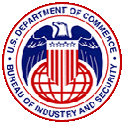
|
Unscheduled
|
Supplement No. 1 to Part 715 Definition of an Unscheduled Discrete Organic Chemical Unscheduled discrete organic chemical means any chemical: (1) belonging to the class of chemical compounds consisting of all compounds of carbon except for its oxides, sulfides and metal carbonates identifiable by chemical name, by structural formula, if known, and by Chemical Abstract Service registry number, if assigned; and (2) that is not contained in the Schedules of Chemicals (see Supplements No. 1 to parts 712 through 714 of this subchapter). Unscheduled discrete organic chemicals subject to declaration under this part are those produced by synthesis that are isolated for use or sale as a specific end-product. Note: Carbon oxides consist of chemical compounds that contain only the elements carbon and oxygen and have the chemical formula CxOy, where x and y denote integers. The two most common carbon oxides are carbon monoxide (CO) and carbon dioxide (CO2). Carbon sulfides consist of chemical compounds that contain only the elements carbon and sulfur, and have the chemical formula CaSb, where a and b denote integers. The most common carbon sulfide is carbon disulfide (CS2). Metal carbonates consist of chemical compounds that contain a metal (i.e., the Group I Alkalis, Groups II Alkaline Earths, the Transition Metals, or the elements aluminum, gallium, indium, thallium, tin, lead, bismuth or polonium), and the elements carbon and oxygen. Metal carbonates have the chemical formula Md(CO3)e, where d and e denote integers and M represents a metal. Common metal carbonates are sodium carbonate (Na2CO3) and calcium carbonate (CaCO3). In addition, metal carbides or other compounds consisting of only a metal, as described above, and carbon (e.g., calcium carbide (CaC2)), are exempt from declaration requirements (see §715.1(a)(2)(ii)(D) of this part). Supplement No. 2 to Part 715 Examples of Unscheduled Discrete Organic Chemicals (UDOCs) and UDOC Production (1) Examples of UDOCs not subject to declaration include:
(2) Examples of UDOCs that you must declare under part 715 include, but are not limited to, the following, unless they are not isolated for use or sale as a specific end product:
(3) Examples of activities that are not considered production by synthesis under part 715 and, thus, the end products resulting from such activities would not be declared under part 715, are as follows:
|
Bureau of Industry and Security
U.S. Department of Commerce